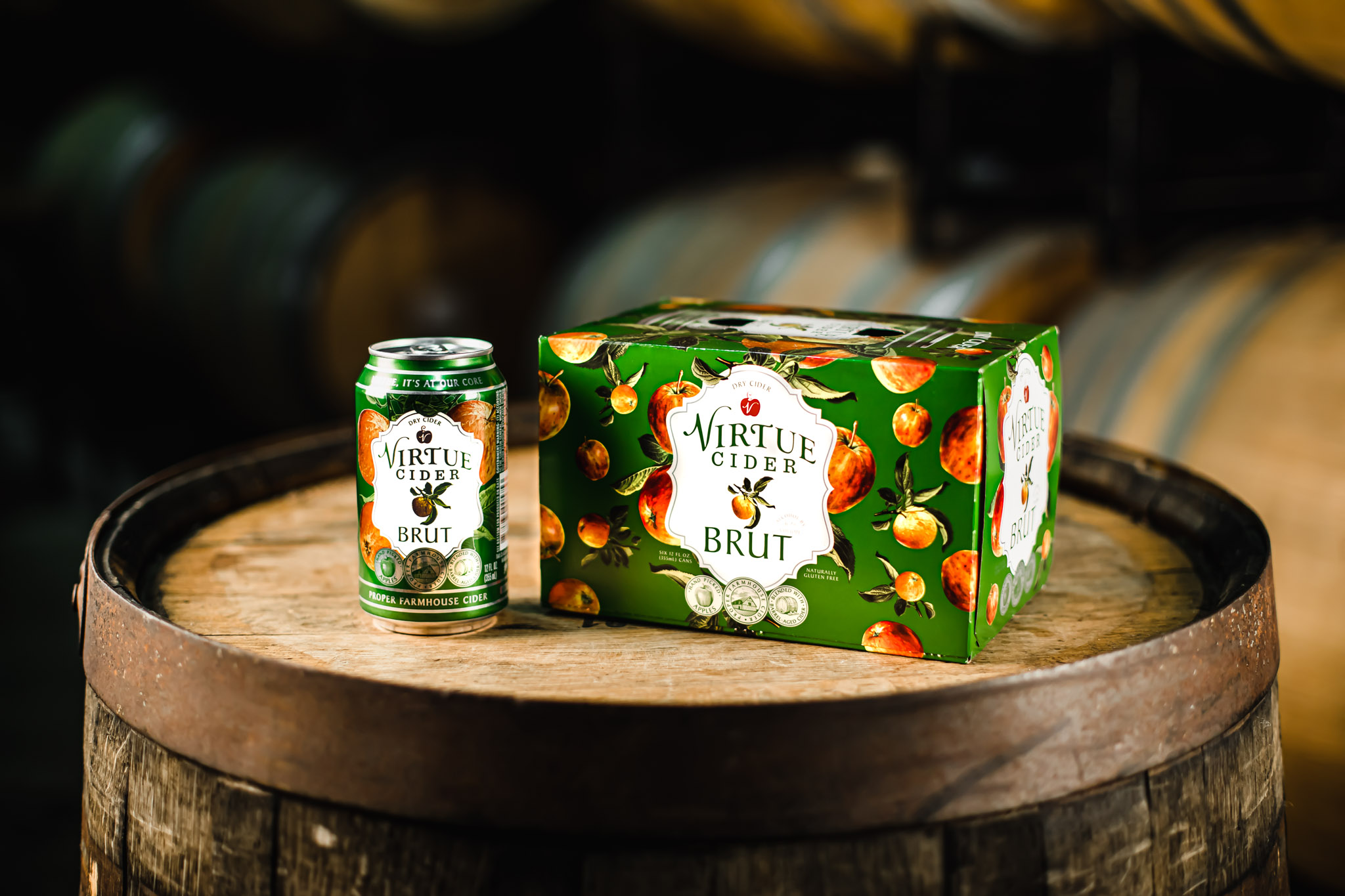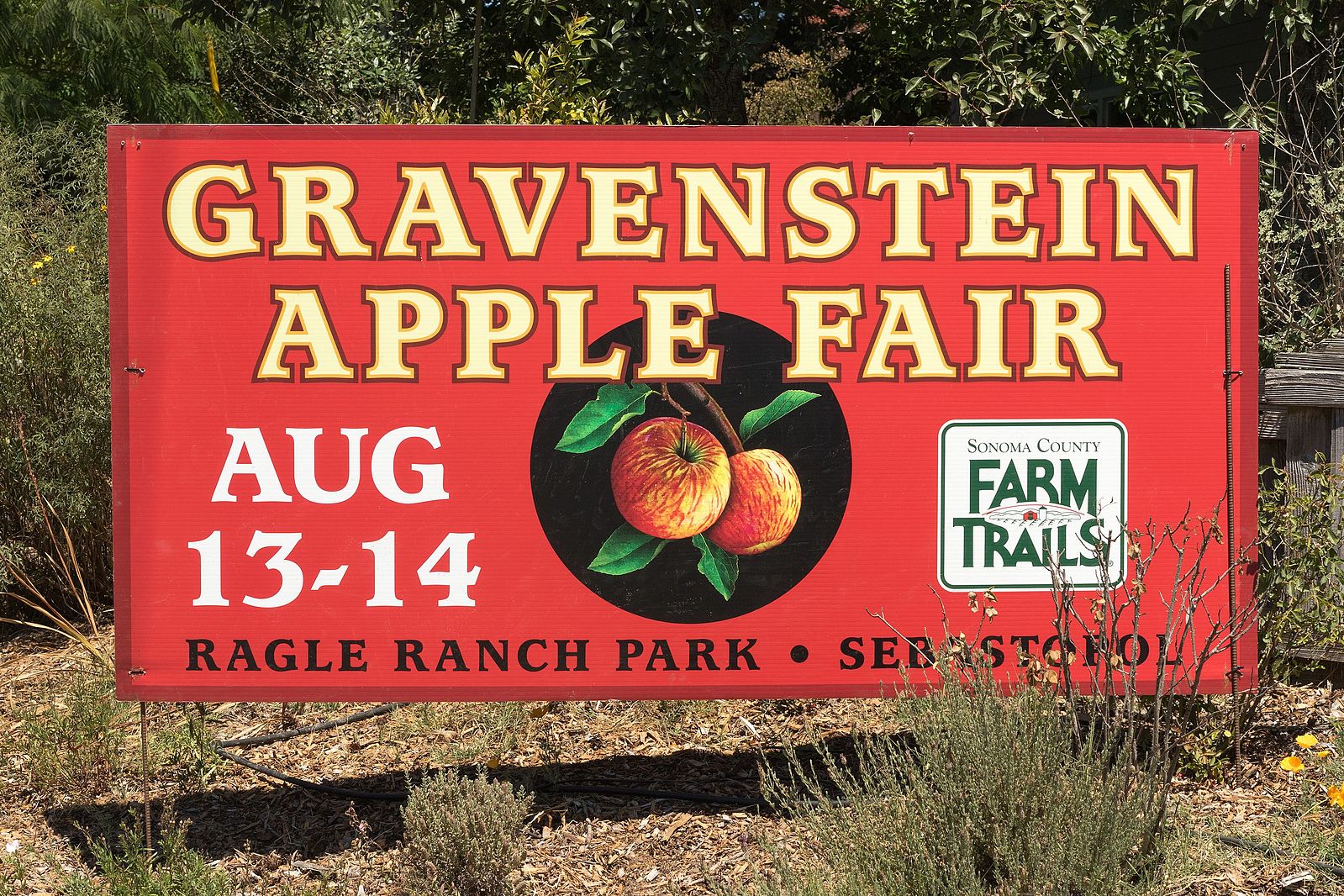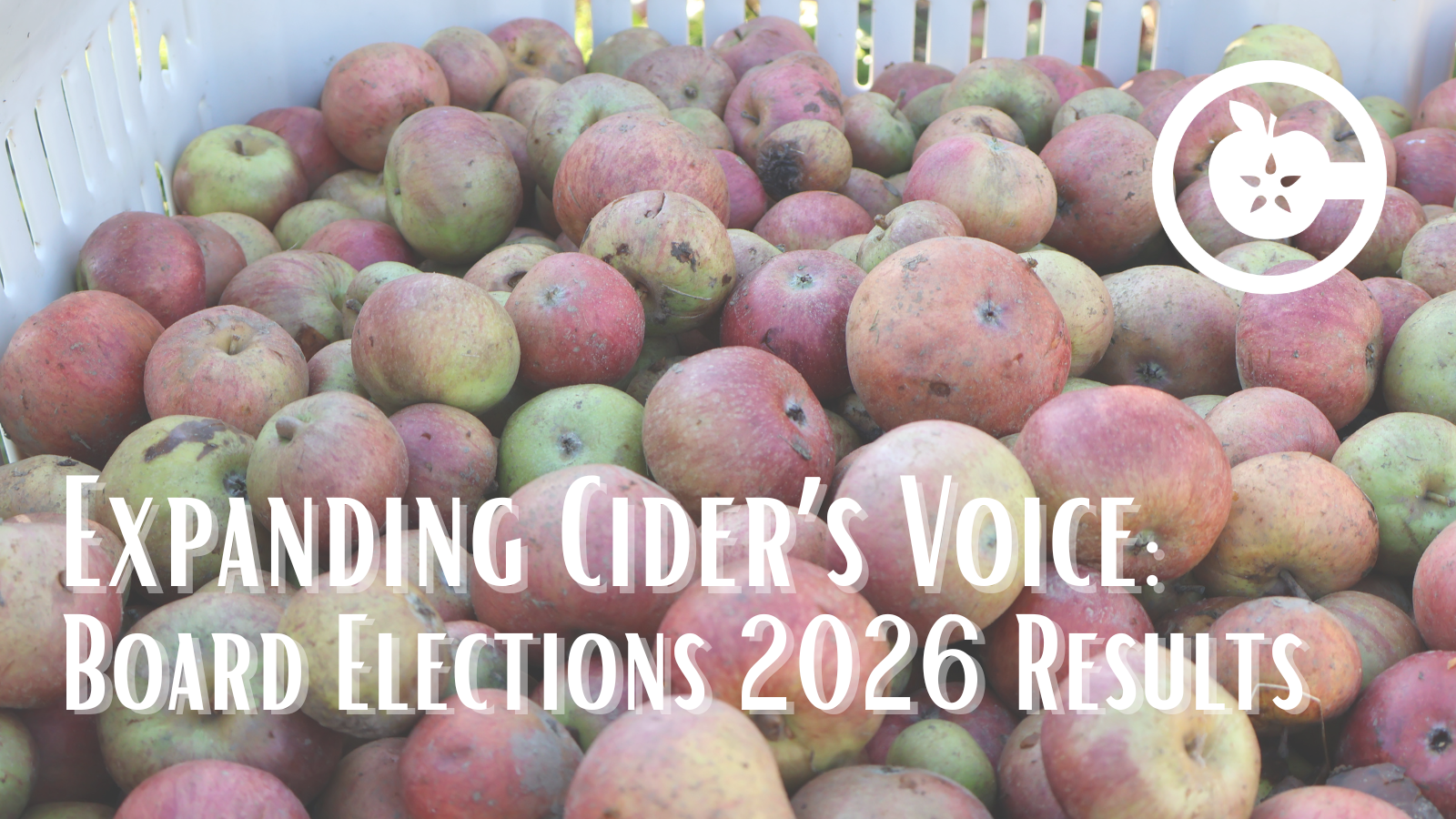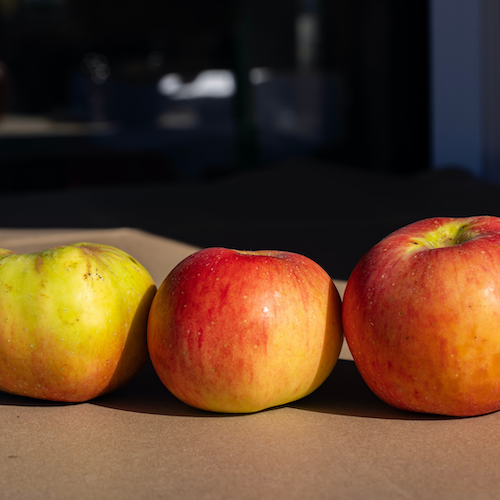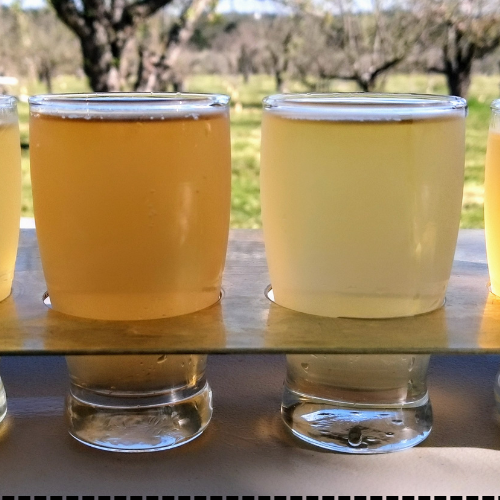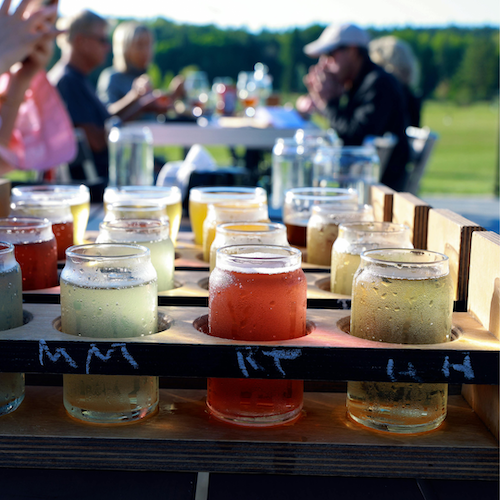Dry Cider January Announced by Cider Association
The American Cider Association is launching a month long campaign called Dry Cider January to promote their members’ ciders containing 0 grams of sugar. They will list the ciders on their website and will be promoting them through the association’s social media channels with the hashtags #dryciderjanuary and #pickdrycider.
The list will be updated regularly and can be found here.
“The brain has a hard time distinguishing fruity from sweet. Many ciders with absolutely no sugar in them can still be fruit-forward,” explained the association’s executive director, Michelle McGrath. “You’ll find there are a multitude of dry ciders available when you start seeking them,” she added.
Alcohol is created when yeast converts sugar into alcohol through fermentation. A cider that contains no residual sugar has been fermented to absolute dryness. Sometimes cidermakers will blend a completely dry cider with fresh juice for acid/sugar balance, but other times they leave the cider entirely dry. These dry ciders are what the association is listing on their website for the campaign.
“It’s fairly common for cidermakers to list a dryness scale on their packaging nowadays. Although the definition of ‘dry’ may vary, a 0g sugar cider will generally be marked as such on the back label. ‘Bone dry’ is another term some companies may use to distinguish their 0 grams RS ciders from their dry ciders with only 1 or 2g,” McGrath shared. Some dry ciders, like Brut from Virtue Cider, include nutrition labels that indicate 0g sugar.
The list of ciders on the association’s website demonstrates the flavors and styles possible not only in the cider category, but in ciders with 0g sugar. From single varietal ciders showcasing specific apple varieties and served in a 750ml bottle to ciders aged on rose and hibiscus petals and served in a 12 oz can, the range is impressive. They are adding to the list daily throughout January. Follow along on their Instagram account @pickcider to learn more about the featured products.
The American Cider Association is developing additional campaigns for 2020 to showcase their members and highlight the diversity of flavor and style in the category.
###
Active members of the American Cider Association may submit their 0g sugar ciders to be featured here. Consumers can participate with the hashtags #dryciderjanuary and #pickdrycider.
The Gravensteins of Sonoma County
“What can I get for you?” I ask the next customer at the bar. “I don’t know. Do you have any cider made with Gravenstein apples?”, comes the reply. “All the ciders on our menu have some Gravenstein in them. What sort of cider do you like?”
That’s a typical beginning conversation at the Craft Cider Tent of the Gravenstein Apple Fair, an annual fundraising event benefiting the local agricultural non-profit Sonoma County Farm Trails. Most of our customers are not regular cider drinkers, and have generally just tried one or another of the large nationally distributed brands. Confronted with a menu of 18 local ciders, from almost as many producers, they are understandably a bit flummoxed. We talk about what they typically drink, do a little sampling, and eventually find something they love.
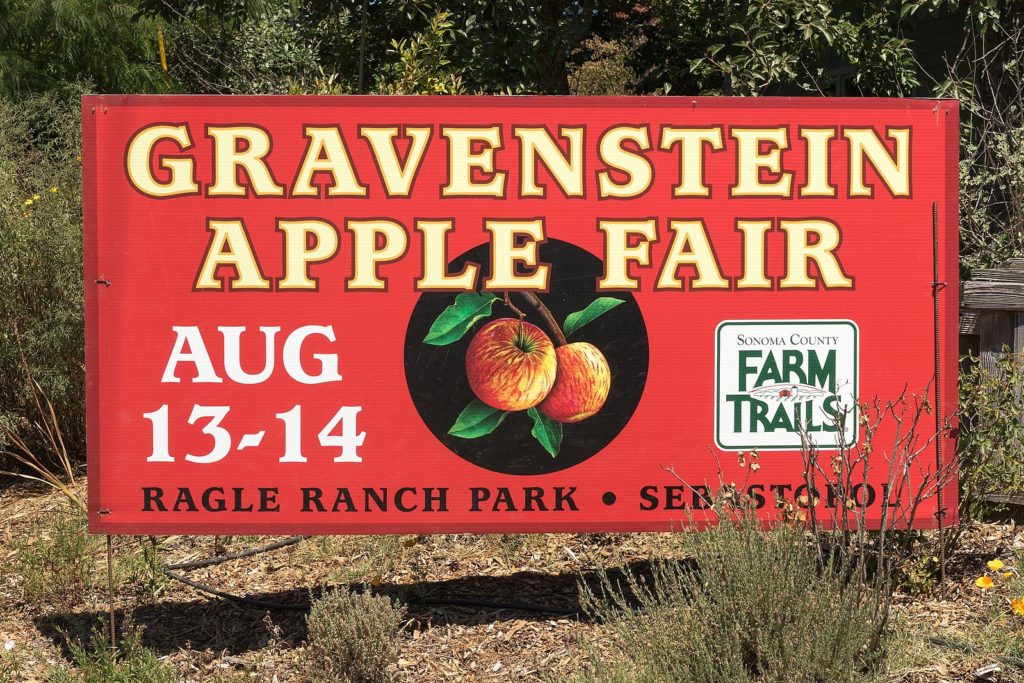
When most people hear “Sonoma County, CA” they think wine, but apples have been a part of the commercial landscape there since northern Europeans arrived in the mid-19th century. Chief among them was, and is, the Gravenstein, an apple whose 18th century origins (said to be Italy, Denmark, or Germany) are shrouded in mystery. It’s an apple that expresses itself marvelously in the area’s loamy soils, warm, dry days, and cool summer nights. Nineteenth century pomologists had it right when they described the Gravenstein as having “that refreshing admixture of sweet and acid which characterize our most esteemed apples” and declaring it good for cider.
Cider makers in the area take full advantage of everything the Gravenstein has to offer making ciders that cover all possible flavor and texture bases – wild and tart native-ferments (Old World Winery and Coturri Winery); dry and fruit forward (Sawhorse Cider and Horse & Plow Winery); clean and crisp (Goat Rock and Ethic Ciders); semi-dry single varietals (California Cider Company and Golden State Cider), and complex blends (tannic from Tilted Shed Ciderworks, aromatic from Dutton Estates). The 10-fold increase in local cider companies over the last seven years has been a boon to local farmers, too, allowing them to resist the economic pressure to grub up their orchards in favor of wine grapes.
While the range of flavor possibilities seems almost endless, what these ciders all have in common is their use of local fruit, typically dry-farmed and organic, harvested and pressed in season. They also rarely make it outside of Northern California, and most can only be found within Sonoma County itself and the handful of counties that surround it. To experience all this place has to offer, you have to go there.
The American Cider Association is making it easy for the attendees of CiderCon 2020 in nearby Oakland to do just that with a pre-conference orchard and tasting tour. For cider lovers, it’s an opportunity that shouldn’t be missed.
American Cider Association Note: Registration for CiderCon 2020 and associated tours will open soon! Darlene Hayes will be the guide for the Sonoma Country tour.
Expanding Cider’s Voice: Board Elections 2026 Results
Each year, the leadership of the American Cider Association reflects the strength, diversity, and ambition of the cider community it serves. At CiderCon 2026 this February, ACA members cast their votes to shape that leadership—re-electing several dedicated directors and welcoming two new voices to the Board of Directors.
We’re grateful to those who continue their service and excited to welcome our newly elected board members, whose experience and energy will help shape the next chapter of cider’s growth nationwide
At-Large Cidery Seats

Re-Elected: Dave Takush, 2 Towns Ciderhouse, Corvallis, OR – Dave Takush is the Head Cidermaker and Co-Owner of 2 Towns Ciderhouse. Dave earned a Master’s Degree in Fermentation Science at Oregon State University and has over fifteen years of experience in the cider industry. His passion for fermentation led him to join two childhood friends in starting 2 Towns Ciderhouse in Corvallis, Oregon. Dave is the current Secretary of the ACA board and serves as board member of the Cider Institute.
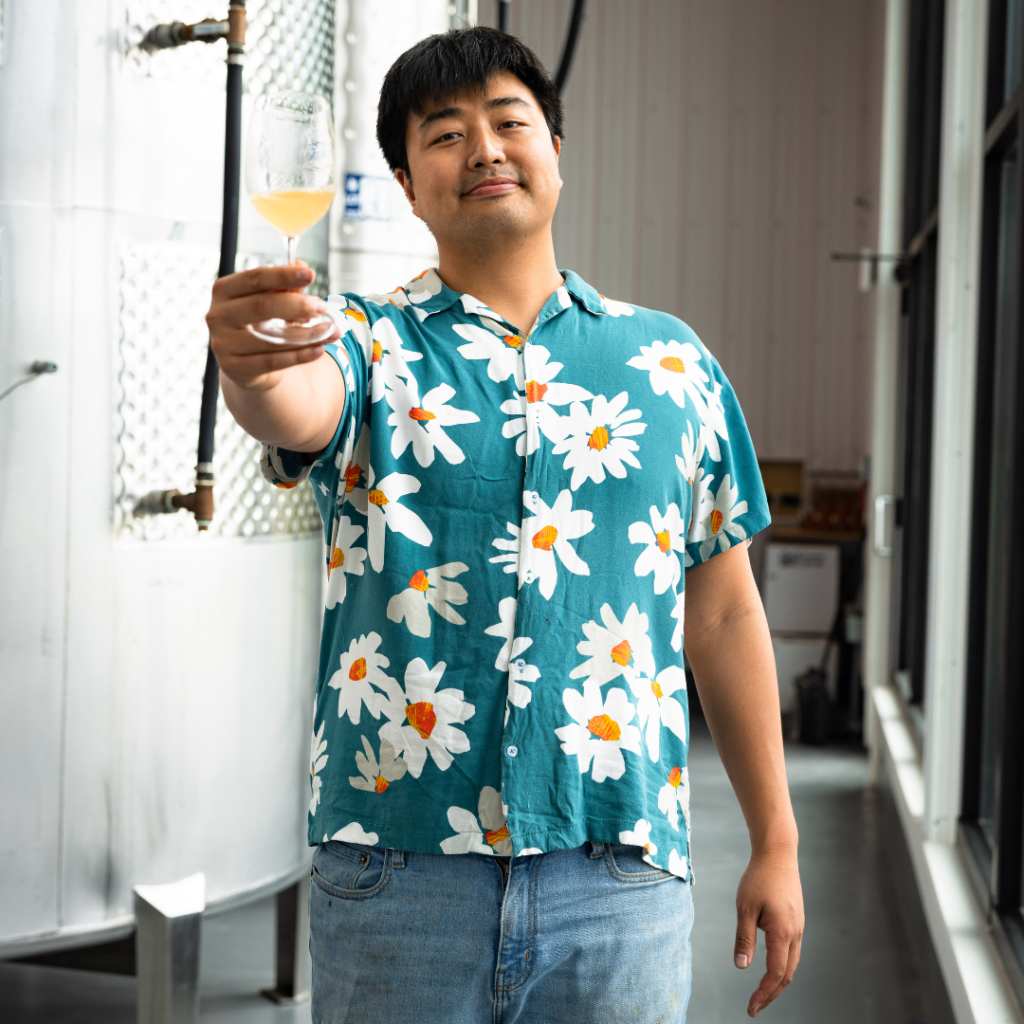
Newly Elected: Richard Yi, Brooklyn Cider House, New Paltz, NY – Richard is the cidermaker for Brooklyn Cider House, bringing ten years of wine industry experience and a degree in winemaking to every part of their production. At Brooklyn Cider House he has helped strengthen operations and support steady growth. He also serves on the board of the New York Cider Association, where he works to advance cider education and support the industry statewide.
Regional Chair – Midwest

Re-Elected: John Behrens, Farmhaus Cider Co. and Farmhaus Farms, Hudsonville, MI – John is a longtime CPA turned Corporate Controller for a Fortune 500 company who discovered there had to be more to life. He started Farmhaus Cider Co. along with his wife 11 years ago on his 150+ year old family homestead. Three years ago they purchased a beloved apple orchard, fruit farm, farm market and bakery in Michigan and he added apple grower to my resume and list of responsibilities.
Regional Chair – Mountain West

Re-Elected: Talia Haykin, Haykin Family Cider, Aurora, CO – Talia Haykin is the co-founder of Haykin Family Cider in Colorado, which she launched with her husband Daniel in 2017 after several years as dedicated home cider makers. Talia oversees operations, finance, compliance, sales, and marketing for the cidery, bringing prior experience as the CMO of large nonprofits and as a professional writer and marketing strategist. She lives in Denver with her husband and their three children, and firmly believes apples are better fermented than paired with peanut butter.
Regional Chair – Northwest

Re-Elected: Marcus Robert, Tieton Cider Works, Yakima, WA – Marcus Robert is President, Cider Maker, and Co-Owner of Tieton Cider Works in Yakima, Washington, and a fourth-generation farmer in the Yakima Valley. With deep roots in agriculture and over a decade of cidermaking experience, Marcus brings a grower-producer perspective to industry leadership. He has served on the American Cider Association Board since 2017, representing the Northwest region and advocating for fair regulation, education, and sustainable growth. Marcus is committed to strengthening the cider community and supporting producers of all sizes through thoughtful, practical leadership.
Large Cidery Seat
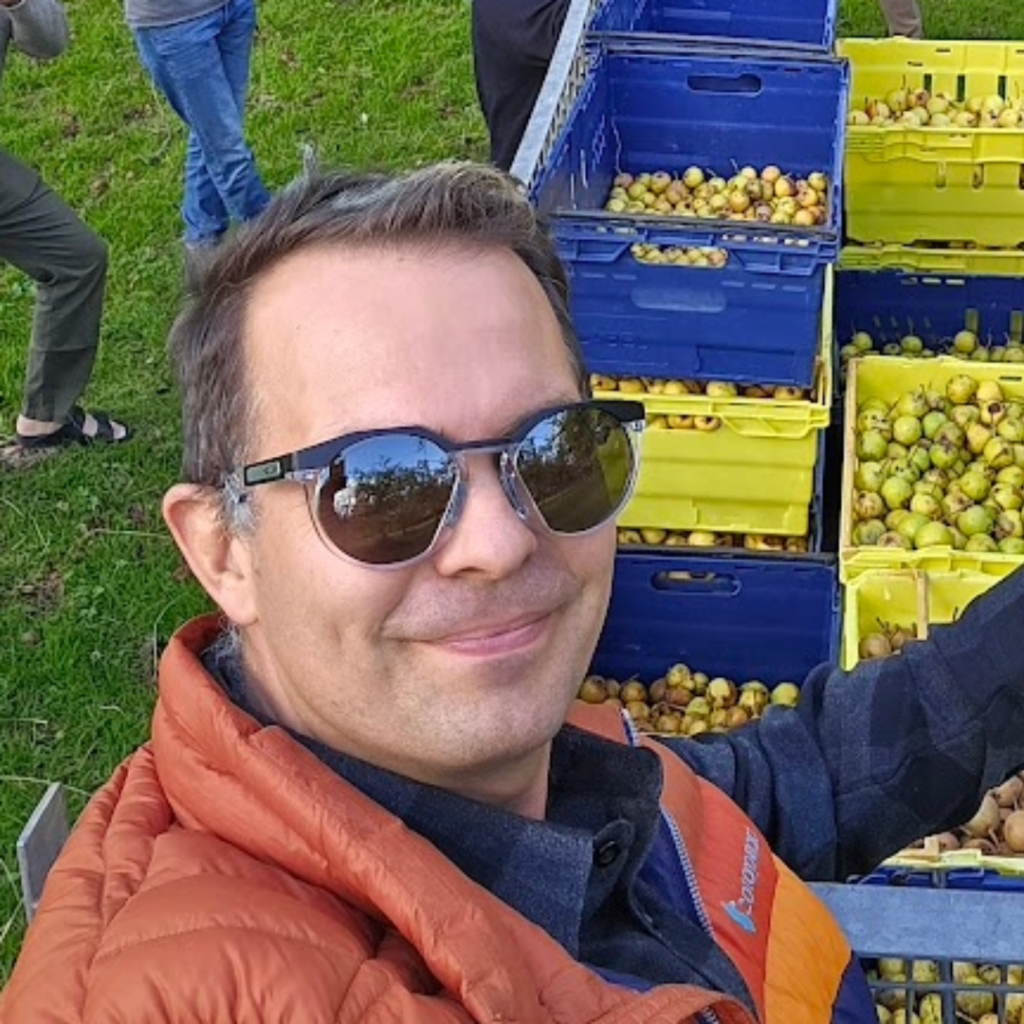
Colin Schilling, Schilling Cider, Auburn, WA – Colin Schilling is the CEO and Co-Founder of Schilling Cider, where he has helped shape the company into one of the nation’s most innovative and forward-thinking craft cideries. Colin’s passion for food and beverage extends well beyond cider. He enjoys exploring new tastes and experiences and has contributed his expertise to brands in the non-alcoholic, coffee, energy, and cannabis spaces. His background includes an MBA focused on entrepreneurship and business sustainability, as well as experience in technology consulting, giving him a broad perspective on how businesses can make a positive impact.
Executive Board
We are also pleased to announce the return of the executive board members who will continue to lead the ACA:
- Christine Walter of Bauman’s Cider will continue in her role as President
- Ben Calvi of Vermont Cider Company has been chosen to serve as Vice President.
- Dave Takush of 2 Towns Ciderhouse in Oregon will continue in his role as Secretary.
- John Behrens of Farmhaus Cider in Michigan will continue in his role as Treasurer.
Gratitude to Past Board Members
We extend our heartfelt thanks to outgoing At-Large board member Phillipe Bishop and outgoing Large Cidery board member Chris Lacey for their dedicated service on the ACA board. Their contributions have been instrumental in shaping the future of the cider industry, and we are grateful for their commitment and hard work.
Meet Your 2026 Board of Directors Candidates
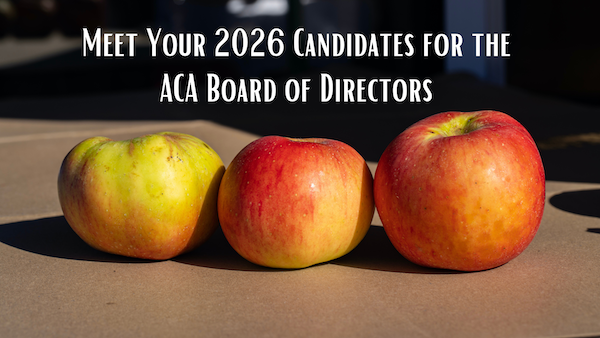
We are pleased to introduce you to this year’s candidates for the American Cider Association Board of Directors. With six seats up for a vote, this year’s candidates bring a wealth of experience and passion to the table, eager to steer the future of the cider industry.
Elections will take place electronically from February 3-5, with ballots sent out on the morning of February 3 and closing at 9:00 AM Eastern on February 5. Each cidery’s primary contact will receive one ballot, offering the opportunity to influence the direction of the ACA.
The board positions open this year include two at-large seats, three regional chairs, and one large cidery seat. Each nominee has put forth a bio and candidate statement which you can read below. All ACA member cideries will vote on at-large seats, while regional chairs and large cidery seats will be decided by cideries within those specific categories. This election is not only a chance to select visionary leaders but also to strengthen the community that supports and celebrates the art of cidermaking.
At-Large Cidery Seats

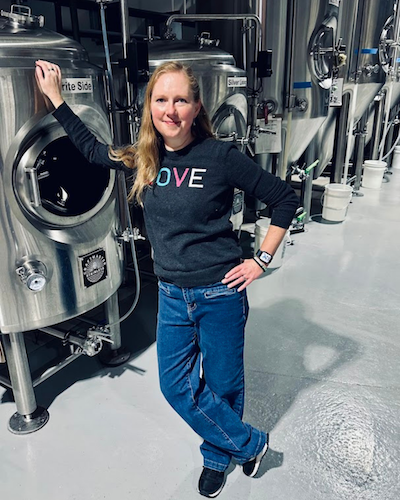
Denise Gardner, White Crow Cider Company, Wichita, Kansas
Bio:
Denise Gardner is the co-owner of White Crow Cider Company in Wichita, Kansas, where she helps run a cidery and taproom built through hands-on experience and determination. Over the past several years, she has truly worn just about every hat—making cider, running the taproom, managing distribution relationships, and handling marketing and social media—while learning what it takes to build a sustainable cider business from the ground up. Denise is passionate about consumer education, practical problem-solving, and supporting cideries navigating real-world challenges like labor, rising costs, and changing drinking habits. She values collaboration, honest conversation, and making sure all cider voices are heard.
Candidate Statement:
My board platform centers on listening, collaboration, and practical leadership that reflects the realities of cideries operating across diverse regions and business models.
If elected, I want to help the ACA continue to deliver meaningful value to its members. That means supporting education, advocacy, and resources that are clear, practical, and easy to apply, especially for cideries navigating tight staffing, increasing expenses, and shifting customer expectations. Strong board decisions are grounded in an understanding of how these pressures show up in day-to-day operations.
As an At-Large board member, I want to be someone members feel comfortable talking to and heard by. I believe good board work starts with listening, asking thoughtful questions, and helping bring different perspectives into productive conversation so the organization can move forward together.
My goal is to help support a resilient, adaptable cider industry and an ACA that reflects and serves its members nationwide.


Greta Pittard Wright, Wise Bird Cider, Lexington, Kentucky
Bio:
Greta Pittard Wright is an experienced strategic leader with more than 18 years in media, production, and brand development. She has guided multi-million-dollar initiatives across broadcast, digital, and feature films, consistently driving meaningful growth and creative excellence. As co-founder of Wise Bird Cider, an award-winning, family-run cidery, she brings deep commitment to quality, tradition, and community stewardship. Greta is passionate about strengthening the cider industry through collaboration, thoughtful leadership, and values-driven innovation. She thrives in environments that empower people, foster shared success, and create lasting positive impact.
Candidate Statement:
As a board member, Greta Pittard Wright will advocate for strengthening the cider industry through greater visibility, deeper agricultural support, and clearer regulatory pathways. She believes the ACA plays a vital role in expanding consumer understanding of cider as a diverse, craft-driven beverage with deep agricultural roots. Greta is committed to advancing nationwide consumer education that highlights cider’s quality, traditions, and unique styles.
She will champion policies and programs that support growers of cider-specific apples, recognizing that a thriving orchard economy is foundational to the category’s future. Additionally, Greta is dedicated to pushing for simplified, modernized distribution regulations that allow cideries of all sizes to grow sustainably and competitively. She aims to foster collaboration, empower producers, and strengthen the long-term resilience of the American cider community.

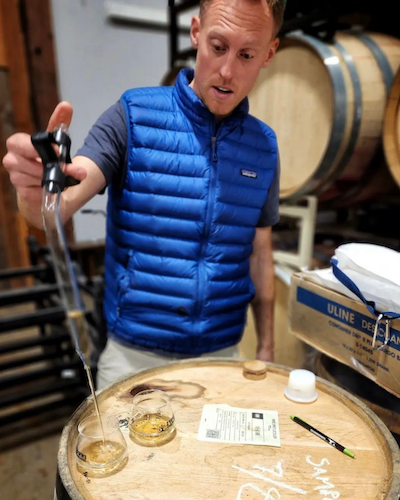
Dave Takush, 2 Towns Ciderhouse, Corvallis, Oregon
Bio:
Dave Takush is the Head Cidermaker and Co-Owner of 2 Towns Ciderhouse. Dave earned a Master’s Degree in Fermentation Science at Oregon State University and has over fifteen years of experience in the cider industry. His passion for fermentation led him to join two childhood friends in starting 2 Towns Ciderhouse in Corvallis, Oregon. Now one of the largest craft cider producers in the nation, 2 Towns has over 100 employees and is dedicated to producing quality craft cider from 100% fresh-pressed Pacific NW apples. Dave is the current Secretary of the ACA board and serves as board member of the Cider Institute.
Candidate Statement:
The cider industry is simply the best. I feel lucky to be present at a time when the tradition of hard cider has made a comeback into the mainstream. In the face of serious headwinds in the alcohol market, cider has shown its resilience and strength. If I am re-elected onto the ACA board, I will put my efforts into 1) Passing the bubble bill to allow fruit cider to be carbonated without penalty or fear from the TTB, 2) The ability for cider producers to put harvest dates on their labels, and 3) Financial Stability for the ACA so that we can continue to grow CiderCon® into one of the best alcohol industry events in the world. We are stronger together and there is a place for everyone in the world of cider. From apple nerds to wild fermentation enthusiasts, my goals are to create a strong marketplace for our passions and businesses.


Richard Yi, Brooklyn Cider House, New Paltz, New York
Bio:
I am the cidermaker for Brooklyn Cider House, bringing ten years of wine industry experience and a degree in winemaking to every part of our production. My work focuses on fruit, fermentation, and building cider with clear character. At Brooklyn Cider House I have helped strengthen operations and support steady growth. I also serve on the board of the New York Cider Association, where I work to advance cider education and support the industry statewide.
Candidate Statement:
My primary goal for the American Cider Association is to grow national awareness and sales by reshaping how consumers and the trade understand cider. The category still battles the misconception that all cider is sweet, which limits retailer enthusiasm and consumer exploration. The ACA can lead the industry by formalizing cider style definitions and creating clear, engaging educational tools that help retailers, distributors, and consumers navigate cider’s true diversity. This work must be done in partnership with regional cider associations to ensure aligned, consistent messaging.
I believe we can promote a fresh, contemporary identity for cider—one that feels exciting, modern, and authentic. “Pick Cider” is a strong foundation, and I would love to help build the next evolution of that message.
Regional Chair – Midwest


John Behrens, Farmhaus Cider Co. and Farmhaus Farms, Hudsonville, Michigan
Bio:
I’m a longtime CPA turned Corporate Controller for a Fortune 500 company who discovered there had to be more to life. I started Farmhaus Cider Co. along with my wife 11 years ago on my 150+ year old family homestead. Three years ago we purchased a beloved apple orchard, fruit farm, farm market and bakery in Michigan and I added apple grower to my resume and list of responsibilities. Now we grow a wide variety of apples, pears, peaches, plums and cherries for use in our ciders and others in the industry.
Candidate Statement:
Through my next term with the American Cider Association (1) I will continue to encourage the ACA to adapt its business model to improve the long term financial stability of the organization. (2) I’ll work to improve the regional engagement and connectivity of cideries across the Midwest region. (3) I’ll continue to grow and improve the perception and recognition of cider as a standalone category across the BevAlc industry.
Regional Chair – Mountain West


Talia Haykin, Haykin Family Cider, Aurora, Colorado
Bio:
Talia Haykin is the co-founder of Haykin Family Cider in Colorado, which she launched with her husband Daniel in 2017 after several years as dedicated home cider makers. Their work centers on celebrating the full range of apples and exploring how they express themselves through fermentation. Talia oversees operations, finance, compliance, sales, and marketing for the cidery, bringing prior experience as the CMO of large nonprofits and as a professional writer and marketing strategist. She lives in Denver with her husband and their three children, and firmly believes apples are better fermented than paired with peanut butter.
Candidate Statement:
I’m running for re-election to the ACA board because I care deeply about having small, independent cideries represented – especially scrappy startups without inherited infrastructure, large teams, or built-in resources. At Haykin Family Cider, I’m often the person figuring out marketing, compliance, sales, and operations as I go, and I bring that reality into board conversations. I focus on making sure the perspective of smaller producers is heard, particularly those in western states where the cider community can feel more spread out. I also enjoy contributing where I can on marketing and communication questions. I believe cider is at a tipping point, and with the right people and clear priorities, the ACA can remain a practical, steady resource for producers like me. I’d be glad to continue serving.
Regional Chair – Northwest
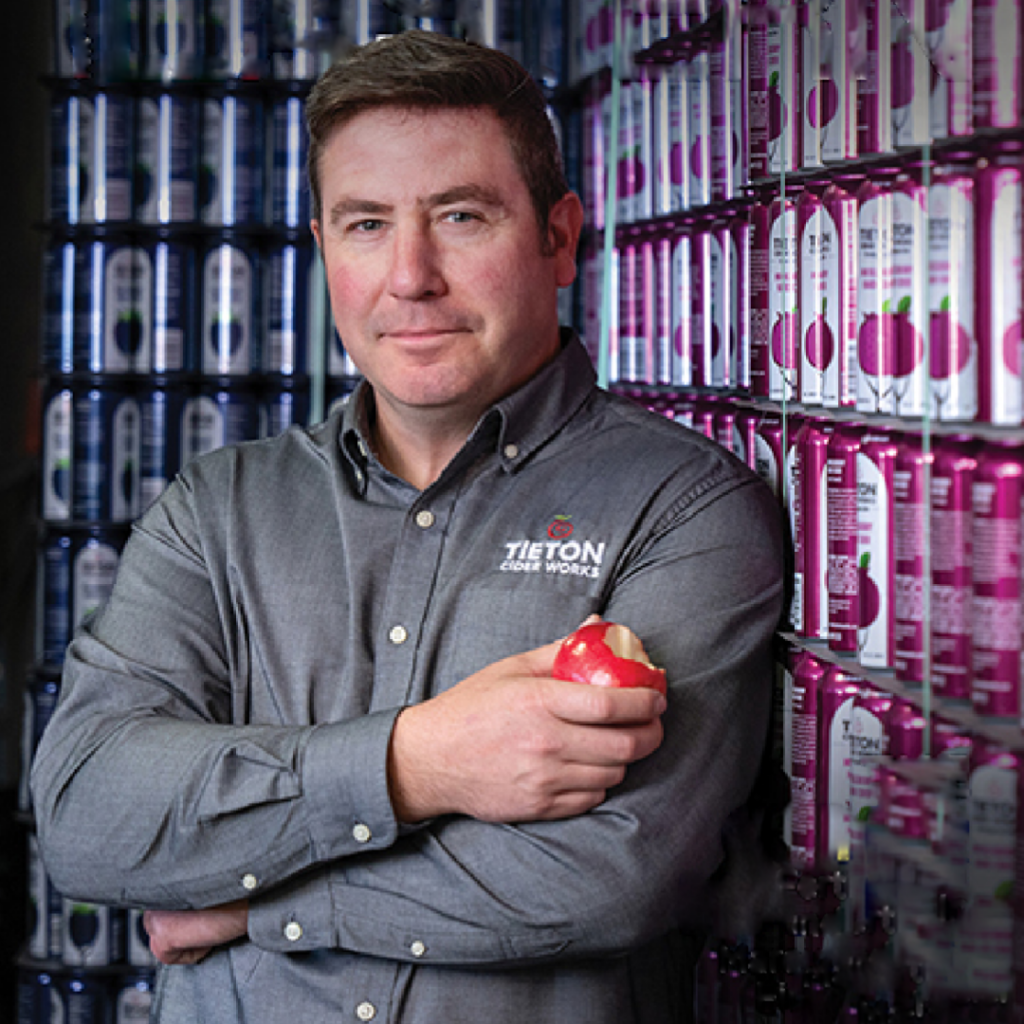
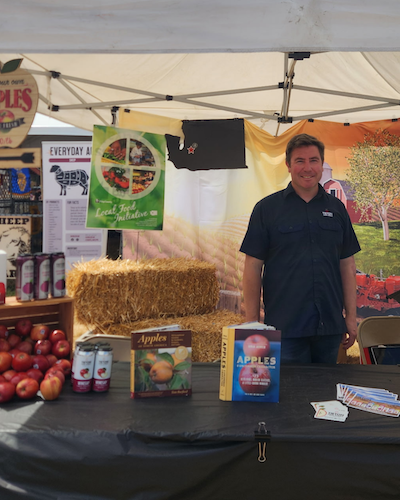
Marcus Robert, Tieton Cider Works, Yakima, Washington
Bio:
Marcus Robert is President, Cider Maker, and Co-Owner of Tieton Cider Works in Yakima, Washington, and a fourth-generation farmer in the Yakima Valley. With deep roots in agriculture and over a decade of cidermaking experience, Marcus brings a grower-producer perspective to industry leadership. He has served on the American Cider Association Board since 2017, representing the Northwest region and advocating for fair regulation, education, and sustainable growth. Marcus is committed to strengthening the cider community and supporting producers of all sizes through thoughtful, practical leadership.
Candidate Statement:
I am running for re-election to the American Cider Association Board to help guide American cider through its next phase of growth and opportunity. As a fourth-generation farmer and co-owner of Tieton Cider Works in Yakima, Washington, I bring a producer-led perspective grounded in agriculture, cidermaking, and scaling a national business.
Cider has proven its staying power, maintaining stability while many beverage categories have declined. With focused leadership, collaboration, and strategic advocacy, the category can continue to grow market share and strengthen its position in the beverage alcohol industry.
During my time on the ACA Board, I have worked to enhance regional representation, advance practical policy solutions, and expand resources that help cider makers of all sizes thrive. I am committed to continuing this work and ensuring a resilient, unified, and sustainable future for American cider.
Large Cidery Seat


Chris Lacey, Golden State Cider, Sebastopol, California
Bio:
Chris Lacey has spent more than 20 years in the beverage industry, leading growth across beer, wine, and cider. As CEO of Golden State Cider, he has guided the brand to become the #1 cider in California and #5 nationally.
Chris began his career in New York with American Beer before joining Rogue Ales & Spirits, where he rose to VP of Sales, overseeing expansion into all 50 states and 30 countries. He went on to lead marketing for 20+ wine brands at Precept Wine and later drove record sales for Constellation Beer at DBI Beverage in San Francisco.
Today, Chris is also launching Sonoma Craft with business partner Chris Jackson, expanding into wine, beer, and beyond. He lives in Northern California with his wife and two children and brings a lifelong passion for fermentation, craftsmanship, and community to the cider industry.
Candidate Statement:
I’m excited about the opportunity to continue working with the ACA. My key goals are to advocate for transparency and quality as the cider category continues to evolve along with supporting key legislation initiatives such as the Bubble Tax, to provide a more balanced playing field for the cider segment. Through working together, we have the potential to redefine the global standard for what cider can be for the long-term.


Colin Schilling, Schilling Cider, Auburn, Washington
Bio:
Colin Schilling is the CEO and Co-Founder of Schilling Cider, where he has helped shape the company into one of the nation’s most innovative and forward-thinking craft cideries.
Colin’s passion for food and beverage extends well beyond cider. He enjoys exploring new tastes and experiences and has contributed his expertise to brands in the non-alcoholic, coffee, energy, and cannabis spaces. His background includes an MBA focused on entrepreneurship and business sustainability, as well as experience in technology consulting, giving him a broad perspective on how businesses can make a positive impact.
Deeply committed to the idea that business can be a force for good, Colin has woven sustainable practices into every aspect of Schilling Cider’s operations. He is recognized for fostering a people-first company culture and continually strives to create a supportive and enriching work environment for every employee.
Colin is eager to connect with others who share his belief in the power of community, innovation, and positive change. He looks forward to collaborating with fellow board members to help further the mission and values of the ACA.
Candidate Statement:
- Advocacy & Fair Taxes: Support ACA lobbying to strengthen cider businesses and reduce taxes, ensuring fair treatment for cider producers.
- Grow National Cider Month: Continue to grow National Cider Month to boost sales and visibility for all cideries large and small.
- Build Industry Partnerships: Foster stronger relationships with trade associations, distributors, and partners to drive collaboration and innovation.
- Improve Business Operations: Roll out programs to help cideries run more efficiently and thrive in today’s challenging market.
I’m committed to championing the cider community and delivering real value for ACA members. Thank you for your support and your vote.
Meet Eastern Cideries at Cider Share!

CiderCon® is almost here, and there’s no better way to kick things off than at the Cider Share Welcoming Reception on Tuesday, February 3, from 5:00 – 7:30 PM. This can’t-miss celebration brings together 50+ cideries from around the world and Eastern Cideries will be there to greet you.
As you enter Cider Share, you’ll be welcomed by the Eastern Wing, highlighting 12 cideries from Maine to Pennsylvania coming together to share their approaches to northern East Coast cider. Featuring regional apples, thoughtful craftsmanship, and innovation, attendees can taste and connect with cideries including:
- Absolem Cider Company — A Maine cidery blending tradition and innovation with orchard-driven expressions inspired by old-world techniques.
- Big Hill Ciderworks — From Pennsylvania orchards to your glass, Big Hill focuses on fruit-forward ciders with true farm flavor.
- Bird Dog Farm & Cider — A family-run cidery in New Hampshire crafting dry ciders from quality apples using time-honored methods.
- Eden Ciders — Vermont’s terroir in a bottle, offering sustainably grown heirloom apple ciders and more.
- Headwater Cider — A beloved Massachusetts local cidery known for balanced, thoughtful New England Style cider.
- New England Cider Co. – Connecticut cider crafted with real fruit that celebrates simplicity and traditional methods
- Ploughman Cider — Adams County, Pennsylvania cider made exclusively from apples grown at Three Springs Fruit Farm, backed by over 200 years of orchard history.
- South Hill Cider — Finger Lakes cidery crafting heirloom and wild apple ciders with farm-to-glass character.
- Stormalong Cider — Massachusetts producer with orchard-based hard ciders in a range of styles.
- Tapped Apple Cidery & Winery — Rhode Island company blending cider and wine traditions in flavorful, approachable pours.
- Watson Wheeler Cider — Vermont cidery focusing on authentic, terroir-reflective craft ciders.
- Yankee Cider Company — Connecticut cider makers celebrating New England apples in every bottle.
Whether you’re a seasoned cidermaker or brand new to the industry, Cider Share is the perfect place to reconnect with CiderCon® friends, make new connections, and kick off the conference in the best way possible. Tickets are $25 for Members and $35 for Non-members, and trust us—it’s worth every sip. Tickets can be added on during registration for CiderCon®.
A big thank-you to Voran for their continued sponsorship and support in making Cider Share possible.
April 18: Certified Pommelier™ Exam at Cider World
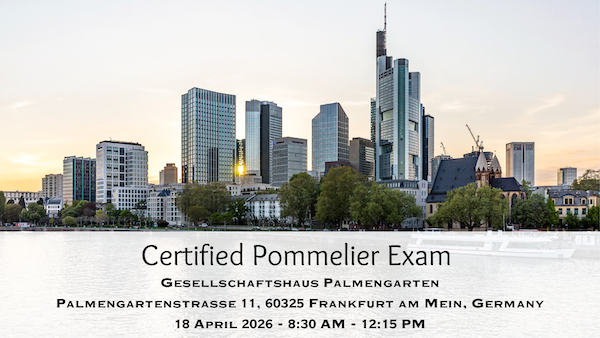
TAKE THE CERTIFIED POMMELIER™ EXAM AT CIDER WORLD IN FRANKFURT, GERMANY ON APRIL 18, 2026!
Are you ready to take the next step in your professional development in the cider industry?
If you have already passed the Level 1 Certified Cider Guide™ exam and are looking for that next challenge? Now is your chance!
The American Cider Association is pleased to announce a Certified Pommelier™ Exam will be held at Cider World in Frankfurt, Germany. The exam will take place Saturday, April 18, 2026. The exam will begin promptly at 8:30 AM.
*Level 1 Certified Cider Guide™ certification is a prerequisite for taking the Certified Pommelier™ Exam. (Haven’t taken your Level 1 Certified Cider Guide Exam™? Buy the bundle here! ACA Member discounts for Level 1 are available in the Resource Hub.)
There’s a discount code available for ACA members for the Certified Pommelier™ Exam. You can find that code in our Resource Hub.
WHAT IS THE CERTIFIED POMMELIER™ EXAM?
The American Cider Association’s mission is to grow a diverse and successful cider industry by providing valuable information, resources and services to our members and by advocating on their behalf. One way to fulfill this mission is through the Certified Cider Professional™ Program, a program aimed at educating the front-line of cider hospitality (distributors, retailers, bartenders and more!) while also welcoming journalists and serious cider enthusiasts.
The exam for the introductory level certification, Certified Cider Guide™ (CCG), is an online test that can be taken at any time. The exam for the more advanced second level of certification, Certified Pommelier™, is only available in person. The exam consists of two parts, a written theory exam comprising short answer and essay questions and a blind sensory evaluation of a number of ciders. Passing the introductory level exam is a mandatory prerequisite to sitting for the Level 2 Certified Pommelier™ exam.
Certified Pommeliers™ must have a fundamental understanding of all topics covered at the introductory level, but must also be able to think critically and demonstrate a deeper understanding of cider and the cider industry.
The topics covered in the exam are:
- Apples, the Orchard & History
- Cider Making
- Flavor & Evaluation
- Cider Families
- Keeping & Serving
- Food & Cider
- Social Responsibility
The exam is meant to be challenging. The only information necessary for successfully passing the theory section of the exam is contained in the Certified Pommelier Study Guide available on Amazon. To study for the evaluation section of the exam, candidates should consider attending one of the sensory analysis videos available through the ACA’s website or attend one of the regularly scheduled webinars. Access to pre-recorded webinars and registration for upcoming live webinars is available directly through our website.
WHY BECOME A CERTIFIED POMMELIER?
Cider is a beautifully nuanced beverage that is less well understood by most consumers. Having the knowledge and skills required to become a Certified Pommelier will equip you to better serve customers, enhance your standing in the beverage community, and give you a unique and valuable professional qualification. Being recognized as a Certified Pommelier will put you in the vanguard of advanced cider specialists in this ever growing category.
HOW MUCH DOES THE TEST COST?
The registration fee for the exam is $350. Current members of the ACA can register at a discounted price of $250 by using the discount code that can be found here. If a candidate sits for the exam but does not pass either section, or only passes one of the two sections, theory or sensory evaluation, they can resit for the section of the exam that they did not pass at a future date. The fee for retaking the exam is $175 for non-members and $125 for current members of the ACA.
Read Terms & Conditions before registering.
WHAT MATERIALS ARE AVAILABLE TO STUDY FOR THE EXAM?
- The Certified Pommelier Study Guide is available directly through Amazon. It is also available at all of Amazon’s international sites.This is the official study guide for the second level of the American Cider Association’s professional certification program. It contains all of the information needed to study for and pass the examination. No other reference materials are required.
- There is also a dedicated Facebook Group (that is open for all to join) with prep materials and in-depth peer conversations that many candidates have found useful.
- Sensory evaluation is an important part of being a Certified Pommelier which is why we test your ability to accurately analyze the structural components, aromas, and flavors of a variety of ciders. In order to aid in the development of your sensory evaluation skills and understand the approach to testing them, we have several pre-recorded videos available for purchase. In addition, we host several live sensory analysis webinars each year. You can access the videos and look for scheduled webinars here.
FREQUENTLY ASKED QUESTIONS
(Download the Frequently Asked Questions document.)
- When will we receive our graded exams? Exams are not returned to candidates, however you will be notified as to whether or not you have passed about 6 weeks from the exam date. If you did not pass a section of the exam, you may request a breakdown of your points by general topic to help you identify areas in which you could improve your score should you wish to retake the exam.
- What is the grade needed for passing? 60% of the possible points for sensory evaluation and 70% for theory
- Is there a tasting section on the test? Yes. You will be asked to evaluate six ciders in two flights, one flight that assesses your ability to distinguish between key structural elements and a second where you are asked to complete a full evaluation of three ciders using the Structured Sensory Analysis format. The possible aromas and flavors document will be supplied for use during the exam.
- How long does the test take? You are given 2 hours to complete the theory section of the exam and 1 hour and 15 minutes to complete the sensory evaluation section. There is a 15 minute break in between sections.
- Is it ok if the name on my ticket or registration doesn’t match the person who attends? Registrations are not transferable, so the name on the I.D. presented when checking in for the exam must match the name on the registration.
- What happens if I cannot attend my registered exam? Please see Exam Rescheduling, Timelines and Fees in the Terms and Conditions Document for full details. If you do need to cancel your registration, exam registration fees can be refunded up to 14 days before the exam. Please note that a $25 administration fee applies to any cancellation.
- When can I register for the exam? Exam registration is open until 14 days before the posted exam date.
- How can I contact the organizer with any questions? Please contact Director of Education Jennie Dorsey at jennie@ciderassociation.org.
- What can I bring into the event? Bringing a personal water bottle is recommended for both sections of the exam. Cell phones, smart watches, computers, books or papers, and any and all other personal items must be left at a designated storage area in the exam room. Pencils will be provided, and spare paper will be available on request. Spit cups, and water will be provided during the evaluation exam. We encourage you to bring your own water bottle for the theory exam. Please contact Director of Education Jennie Dorsey at jennie@ciderassociation.org prior to registering for the exam if you wish to request special accommodations.
- Is the Certified Pommelier Exam available in my area? Certified Pommelier exams are held periodically throughout the year and in a variety of locations. Please check our current exam schedule to find an exam suitable for you.
- How many Certified Pommeliers are there currently? You can find the current number of Certified Pommelers here.
- Do I need to pass the Certified Cider Guide exam to take the Certified Pommelier exam? Yes. Passing the introductory exam to become a Certified Cider Guide is a prerequisite. If you have not yet taken this exam, you can purchase a package which includes an instructional video, study guide, and access to an online exam HERE.
- Are there ID or minimum age requirements to sit for the event? YES. You must be of legal drinking age in the country where you sit for the exam, and when checking in at the exam you must provide a photo ID that will both verify your age and identity.
March 28th Taste Like A Pro: Cider Sensory Workshop at Armageddon Brewing
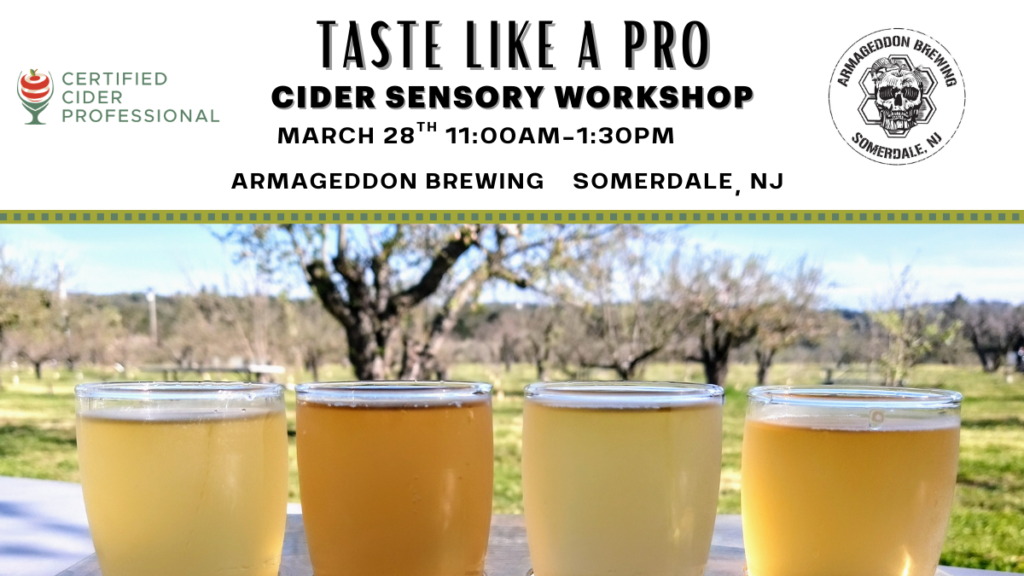
Join us at Armageddon Brewing in Somerdale, NJ on March 28th!
Join us for a sensory deep dive into the world of cider and learn to taste cider like a pro! Whether you’re preparing for the Certified Pommelier™ exam or just curious how pros taste cider, this immersive, hands-on session will give you the tools to sip and share with confidence. You’ll learn how to detect flavors, spot faults, and describe cider like a seasoned cider professional. Walk away prepared for your exam, or to wow your friends with a sharper palate and a deeper love for the world’s most diverse fermented beverage.
Price: $45 Non-members, $35 ACA members (Member Discount can be found in the Resource Hub)
Location: Armageddon Brewing,
900 Chestnut Ave, Suite J, Somerdale, NJ 08083
Schedule:
- Welcome & Introduction (10 min)
- Part 1: Foundations of Sensory Tasting (25 min)
- Part 2: Structured Tasting Practice (60 min)
- Part 3: Identifying/Understanding Common Cider Faults (20 min)
- Part 4: Elevate Your Tasting Vocabulary (15 min)
- Wrap-Up + Q&A (20 min)
February 20: Taste Like a Pro Cider Sensory Workshop at Hardball Cider
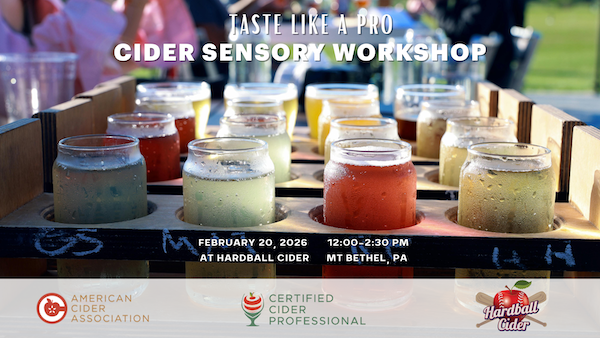
Join us at Hardball Cider in Mt. Bethel, PA on February 20!
Join us for a sensory deep dive into the world of cider and learn to taste cider like a pro! Whether you’re preparing for the Certified Pommelier™ exam or just curious how pros taste cider, this immersive, hands-on session will give you the tools to sip and share with confidence. You’ll learn how to detect flavors, spot faults, and describe cider like a seasoned cider professional. Walk away prepared for your exam, or to wow your friends with a sharper palate and a deeper love for the world’s most diverse fermented beverage.
Price: $45 Non-members, $35 ACA members (Member Discount can be found in the Resource Hub)
Location: Hardball Cider, 805 Orchard Rd, Mt. Bethel, PA 18343
Schedule:
- Welcome & Introduction (10 min)
- Part 1: Foundations of Sensory Tasting (25 min)
- Part 2: Structured Tasting Practice (60 min)
- Part 3: Identifying/Understanding Common Cider Faults (20 min)
- Part 4: Elevate Your Tasting Vocabulary (15 min)
- Wrap-Up + Q&A (20 min)
Explore the Art of Food & Cider Pairing with Jennie Dorsey’s New Book

For those who have ever wondered how to elevate their dining experience with the perfect cider pairing, Jennie Dorsey, the Director of Education at the American Cider Association, has crafted the ultimate guide. Her new book, Cider Paired and Plated: The Art of Food and Cider Pairing, is a sensory-driven journey that caters to professionals, enthusiasts, and curious drinkers alike and is now available for purchase on Amazon.com. In addition, it will be available for purchase at CiderCon® 2026 where Jennie will be happy to sign it for you!
Cider Paired and Plated weaves together foundational pairing theory with practical applications, exploring how elements like acidity, tannin, sweetness, carbonation, and aroma play with texture, fat, spice, and umami on the plate. Whether you’re a fan of crisp modern ciders, tannic bittersweet varieties, or sweet dessert ciders, you’ll find strategies to enhance your dining experience without feeling overwhelmed.
Cider Paired and Plated offers curated pairings across multiple courses, including:
- Cheeses
- Small plates and appetizers
- Entrées
- Desserts
- Cider-based cocktails
Each section features thoughtfully developed recipes, complete with step-by-step cooking instructions and practical notes on why each pairing excels. The cocktail recipes, in particular, highlight cider’s versatility as both a primary ingredient and a structural element behind the bar.
Designed to be both a reference and an invitation to experiment, Cider Paired and Plated encourages readers to think seasonally, locally, and creatively. Whether you’re hosting an intimate dinner, developing a beverage program, or studying for professional cider certification, this book empowers you to place cider at the heart of modern food and drink culture.
With an emphasis on sensory awareness, storytelling, and shared experiences, Cider Paired and Plated positions cider not as an alternative but as a centerpiece of contemporary culinary experiences. It’s an invitation to discover new dimensions of taste and enjoyment, one glass at a time. Check it out today!
New Dietary Guidelines Reinforce a Science-Based, Moderate Approach to Alcohol
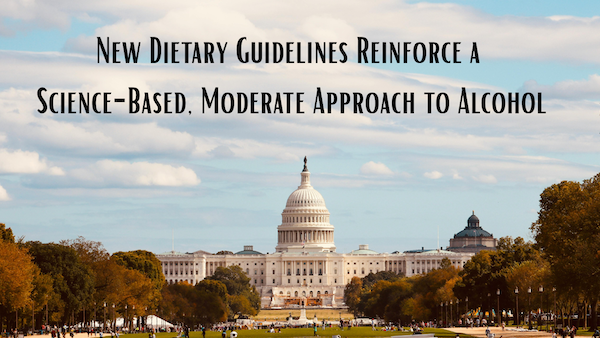
The newly released U.S. Dietary Guidelines for Americans reaffirm a long-standing, evidence-based approach to alcohol consumption—one grounded in moderation and informed by the full body of peer-reviewed research. For the American Cider Association and our members, this outcome reflects the importance of keeping science, not bias, at the center of federal health policy.
Throughout the Guidelines development process, ACA worked alongside the Science Over Bias coalition, a group of beverage alchohol associations and additional stakeholders committed to transparency and scientific integrity. The coalition formed in response to proposals that would have dramatically lowered recommended alcohol limits based on selective research, advancing a “no consumption is best” approach. Ultimately, the final Guidelines maintained moderation standards that reflect decades of scientific consensus and real-world context.
The official DGA alcohol recommendation:
- Consume less alcohol for better overall health.
- People who should completely avoid alcohol include pregnant women, people who are recovering from alcohol use disorder or are unable to control the Sodium amount they drink, and people taking medications or with medical conditions that can interact with alcohol. For those with a family history of alcoholism, be mindful of alcohol consumption and associated addictive behaviors.
This change removes the previous daily guidance of up to one beverage for women and two beverages for men, shifting away from gender-specific intake recommendations.
This broad coalition of the nation’s agriculture, beverage and hospitality industries issued the following statement in response to the alcohol guidance in the new Dietary Guidelines for Americans:
“The Dietary Guidelines’ longstanding, overarching advice is that if alcohol is consumed, it should be done in moderation. These updated guidelines, underpinned by the preponderance of scientific evidence, reaffirm this important guidance.”
For cidermakers, this matters. Cider is an agricultural product rooted in orchards, rural economies, and small businesses—many of them family-owned and women-led. Federal nutrition guidance has real implications for how our industry is perceived, regulated, and communicated to consumers. Balanced, evidence-based policy allows producers to continue promoting responsible consumption while supporting local agriculture and hospitality.
ACA supports clear consumer education, transparency, and ongoing research into alcohol and health. At the same time, we believe that public policy must consider the totality of evidence and the diverse communities affected by it—from farmers and producers to consumers and public health professionals.
We appreciate the work of the many scientists, advocates, and coalition partners who spoke up during this process. The ACA will continue engaging with Congress, federal agencies, and allied organizations to ensure that future alcohol policy discussions remain fair, data-driven, and free from predetermined outcomes.
More resources about the Dietary Guidelines for Americans:
The Year in Cider from Feel Goods Insights
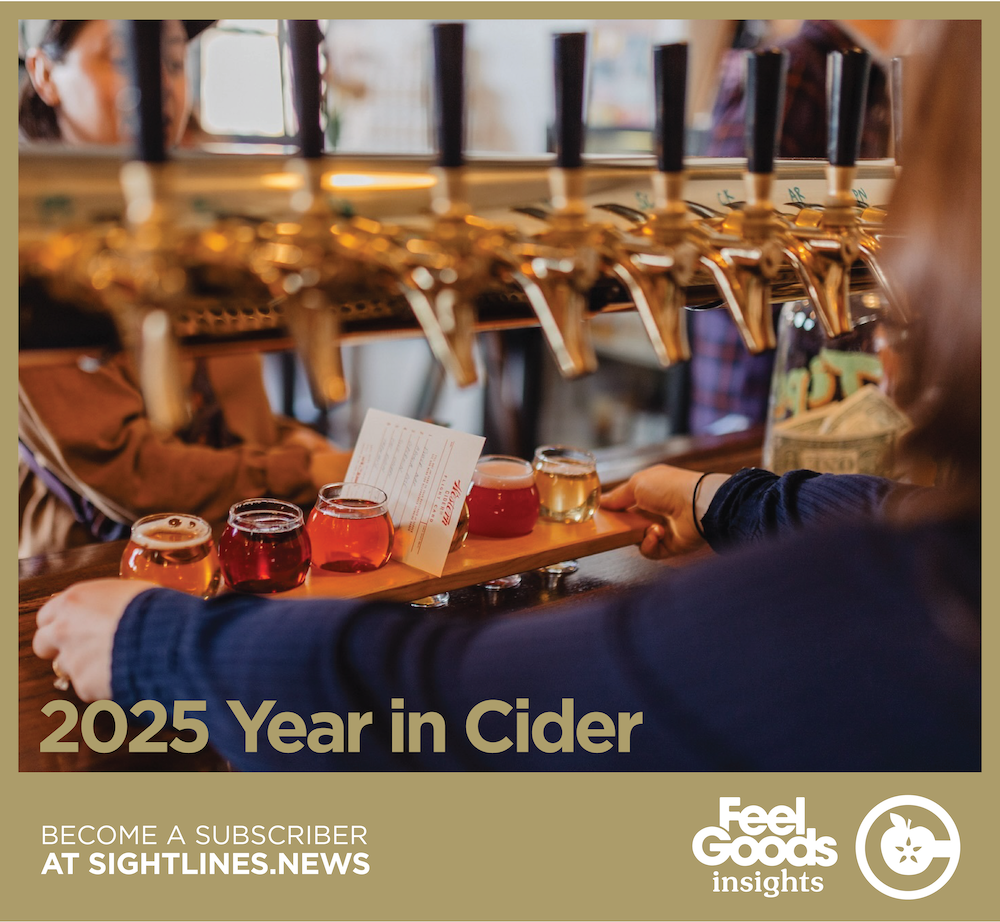
Each month consumer insights platform Sightlines will share one quick hit you can use to make confident decisions. Also, ACA members get 50% off a Sightlines subscription. Find the discount code in the Resource Hub.
Off-Premise
Cider was a quiet standout among alcohol categories this year. At a time when nearly every subset of the industry struggled—from high-end spirits to wine to craft beer—cider posted positive volume growth in the off-premise, with convenience stores representing an especially strong channel. Cider volume was up +1.7% in the off-premise through the end of November, according to Nielsen multioutlet and convenience store data, while dollar sales were up +2% in those aggregate stores. In convenience stores, cider dollar sales rose even higher, up +6%. The on-premise picture was less rosy, however cider still outperformed some other segments. Given signs of acceleration in the waning months of the year, cider is poised to enter 2026 on relatively strong footing.
The takeaway: As other categories like hard seltzer and craft beer decline, cider is showing signs of long-term resilience in flavor-forward spaces. Imperial, flavored, and single-serve cider have helped the category make continued inroads in convenience stores. The challenge ahead is to maintain momentum as c-store points of distribution fill in.
Beer Purchasers Index (BPI)
The National Beer Wholesalers Association’s forward-looking Beer Purchasers Index (BPI) for November—the most recent month for which data is available—shows cider as the lone category that wholesalers feel more optimistic about than they did in 2024. The November 2025 BPI reading of 41 also marks the first time in five years that cider has enjoyed a BPI over 40. That’s a bright spot; however, a BPI less than 50 still indicates a category in contraction, as wholesalers anticipate purchasing less of it compared to the year prior.
The takeaway: Cider has a compelling story to tell its wholesale and retail partners right now. Message around these wins (or, in some cases, its strength relative to other categories’ losses). There’s data to support an argument that certain flavored cider brands deserve coveted display space alongside ready-to-drink cocktails. Retailers might be willing to swap in cider at a time when flavored malt beverages and hard seltzers are cooling.
On-Premise
The on-premise, however, offers less positive numbers for cider. Volumes fell -9% over the past 52 weeks, according to NIQ, with those losses accelerating in the last 12 weeks. As with chain retail, other categories such as craft beer and hard seltzer suffered steeper declines, so cider held its volume share of the beer category (1%) on-premise. Dollar sales showed similar trendlines.
The takeaway: In a world where on-premise placements are still limited to a single draft handle or a few cooler spots, cider isn’t able to maximize on the strength of its flavor variety the way it does on retailers shelves. But it’s still an environment where cider isn’t ceding ground. Flavored malt beverages, craft beer, and hard seltzers all saw steeper volume declines this year than cider, meaning cider can potentially capture a portion of those drinkers looking for seasonal and fruit-forward offerings.
Certified Cider Professional™ Progam – 2025 Year in Review
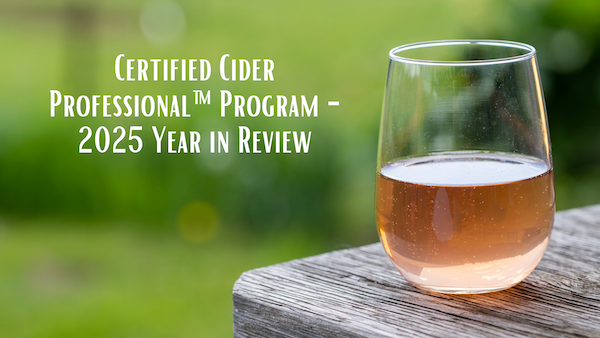
As we close out the year, I find myself reflecting on how much the Certified Cider Professional™ education programming has grown and evolved. My goal this year was to make education more accessible, more practical, and more connected to real cider experiences. I focused on meeting learners where they are, whether that meant digital learning, attending a workshop, or tasting along at home.
One of the most impactful developments this year was the expansion of our sensory-focused videos on YouTube. These resources were designed to help learners slow down and practice, building familiarity with aroma, flavor, mouthfeel, and balance in a way that feels approachable and repeatable. I wanted these videos to feel like an open invitation to taste, pause, rewind, and revisit concepts as often as needed, because sensory skills are built through repetition and confidence.
In-person sensory workshops continued to be a vital part of our education work. There is something uniquely powerful about tasting together, comparing notes, and calibrating language in real time. These workshops allowed participants to explore cider styles, apple varieties, and structure side by side, reinforcing that sensory evaluation is both a personal experience and a shared conversation.
The addition of Study Kits shipped through Press Then Press helped bridge the gap between digital and in-person learning. By delivering curated tasting bundles directly to participants, we were able to extend the classroom into people’s homes. Tasting along with videos or workshops transformed abstract concepts into tangible understanding and kept the focus grounded in real cider.
Looking back, what stands out most is how these formats worked together. Videos, workshops, and delivered tasting bundles created multiple entry points into cider education, while reinforcing the same sensory foundations. As we move into the new year, I am proud of the curiosity, engagement, and commitment our community continues to bring to learning. This year reinforced my belief that thoughtful, inclusive education strengthens not just individual palates, but the cider industry as a whole.
Myself, the Education Committee, and the global team of Licensed Educators are excited to expand these educational offerings and to debut new digital and in person theory learning modules in the new year.
Jennie

